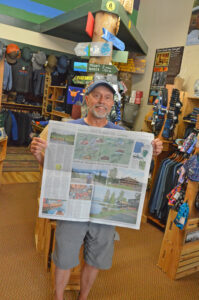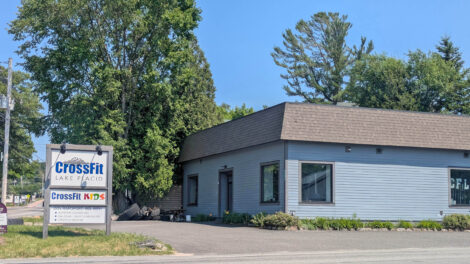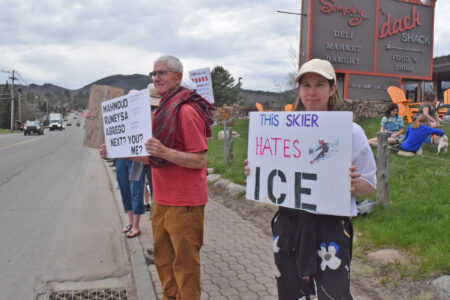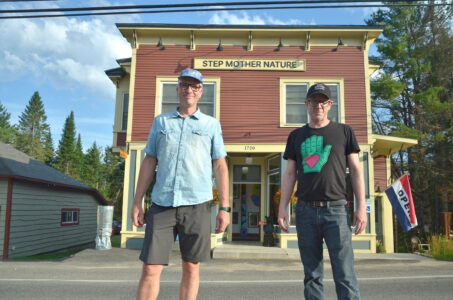Crawling the web
Software provides glimpse into Essex County vacation rental market
LAKE PLACID — The effort to ensure compliance with Essex County’s occupancy tax law has ratcheted up this summer as a software company that digitally “crawls” the internet to identify vacation rental listings has provided the Regional Office of Sustainable Tourism with a detailed glimpse into the rental market.
The reports on Essex County and the village of Lake Placid are from the software service provider STR (Short Term Rental) Helper. Conducted on April 7, STR Helper found 811 total listings in Essex County and 344 in the village of Lake Placid. STR Helper clarified, however, that many of those listings are duplicates, thus determining 654 “unique” listings in the county and 239 in the village limits.
The reports include all properties currently listed on major short-term rental websites such as Airbnb and the HomeAway family of sites, which include VRBO.com (Vacation Rental By Owner), VacationRentals.com and Owners Direct. ROOST has collected these numbers and provided them to the town of North Elba, village of Lake Placid and Essex County while the county has seen improved compliance with its occupancy tax law from the vacation rental community.
Until last year, owners of vacation rentals did not need to pay what is known to many as the “bed tax.”
Ninety-five percent of the bed tax goes to ROOST and the other 5 percent to the county for administration purposes.
ROOST CEO Jim McKenna said through the end of June, ROOST’s 95 percent takeaway of the bed tax from the “High Peaks Region” — an area spanning Lake Placid to Lake Champlain, the Schroon Lake region and the Whiteface region — amounted to just under $1 million.
And nearly a quarter of that total is from vacation rentals. McKenna said through the end of June, about $213,000 of the occupancy tax takeaway for ROOST had been derived from vacation rentals while about $736,000 was through the more traditional hotels and motels.
“It’s still a work in progress (to get compliance),” McKenna said. “But that’s OK. And that’s why we are looking at (STR Helper). It’s almost impossible to (ensure compliance), unless you have some type of webcrawling type thing.”
This “webcrawler,” STR Helper, provided ROOST with a 41-page report on Essex County and a 20-page report on Lake Placid.
And one of the top takeaways that ROOST has gleaned thanks to the recent bed tax collection numbers and the data from the STR Helper reports is that Airbnb’s share of the vacation rental market is much less than 50 percent. This is an important takeaway for ROOST because, thanks to a deal struck last year, the county and ROOST are getting 100 percent of bed tax dollars for listings booked through Airbnb, though Airbnb does not provide the identities of those locals listing on their site.
McKenna said of the county’s total bed tax collections thus far this year, just 7.8 percent is through Airbnb.
“There is still a gap in Airbnb numbers and all private rentals,” McKenna said. “Airbnb doesn’t have the total market.”
STR Helper’s Essex County report shows that of the 811 total listings in the county, 65 percent (531) are in what STR Helper regards as “homes” while 278 listings are in “non-homes.”
The report also shows that HomeAway, and its sites such as VRBO.com and VacationRentals.com, has a firm grip on the vacation rental market, with 72 percent of listings (585), compared to 28 percent (226) for Airbnb.
Airbnb has a higher percentage of “non-homes,” with 42 percent of listings on its site classified as such (96 non-homes), compared to 31 percent (182 non-homes) for HomeAway.com.
Of the 654 “unique” listings in the county, 207 were classified as “non-homes.” Of the non-homes, 26 percent were apartments (54), 25 percent were condos (51) and 20 percent were townhomes (42), among other classifications.
Of all the listings throughout the county, the majority were for six or more visitors, though many listings advertised for 20 or more guests, including a 35-guest “Lake Placid 12 Bedroom Chalet.”
In the village of Lake Placid, there was a much more even split in the market between HomeAway (51 percent) and Airbnb (49 percent), as 174 total listings in the village were through HomeAway’s family of sites while 170 total were through Airbnb.
Within the village, HomeAway had a higher percentage of “non-homes (88) to homes (86), while Airbnb had 88 homes and 82 “non-homes.”
STR Helper found 239 “unique” listings in the village, 124 in single-family homes compared to 115 in “non-homes.” The non-homes were comprised of 50 apartments (44 percent), 36 townhomes (31 percent), 23 condos (20 percent) and six “other.”




